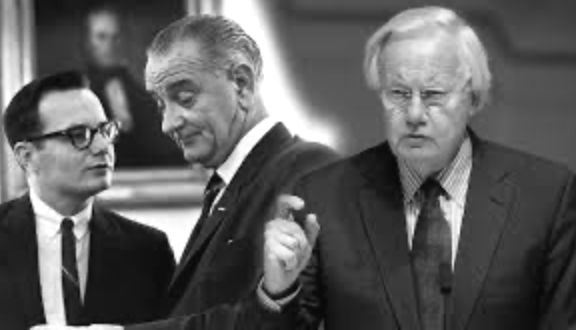
Bill Moyers Helped Break the Media’s Climate Silence
Columbia Journalism Review
06/30/2025
In recent days, the journalism world has been paying tribute to Bill Moyers, and rightly so. Bill died last Thursday, June 26, at the age of ninety-one. Obituaries and tributes have cited his work as the White House press secretary to President Lyndon Johnson in the 1960s and his subsequent decades of TV journalism at PBS and CBS, where his eyewitness reports, probing interviews, and incisive commentary on a vast range of subjects were lauded as equaling Edward R. Murrow’s.
Urging his fellow journalists to push back against the commercial considerations that can cloud newsroom leaders’ judgment, Bill invoked Murrow’s battles in 1939 to get his bosses in New York to let him cover Hitler’s impending invasion of Poland rather than the dance contests in London and Paris the bosses wanted. Bill then challenged journalists today to step up to our historical moment—to break our profession’s silence about the climate crisis and its abundant solutions. “Our responsibility as journalists,” he said, “is to tell the story so people get it.”
Bill also was instrumental in raising the first million dollars in philanthropic support that launched Covering Climate Now. By that September, CCNow had organized 323 news outlets across the US and around the world to do one week of dedicated climate reporting. By coincidence, a Swedish teenager named Greta Thunberg inspired an estimated six million people to take to the streets around the world that same week demanding climate action. The combination of high-profile news coverage and massive civil society mobilization triggered a decisive shift. Government leaders could no longer ignore the crisis without political risk. Media leaders began to see that climate change mattered to the public and deserved more news coverage.
“Ideas have power, but ideas need legs,” Bill once said. “The eight-hour day, the minimum wage, the conservation of natural resources and the protection of our air, water, and land, women’s rights and civil rights, free trade unions, Social Security and a civil service based on merit—all these were launched as citizens’ movements and won the endorsement of the political class only after long struggles and in the face of bitter opposition and sneering attacks.… What’s right and good doesn’t come naturally. You have to stand up and fight for it—as if the cause depends on you. Because it does.”